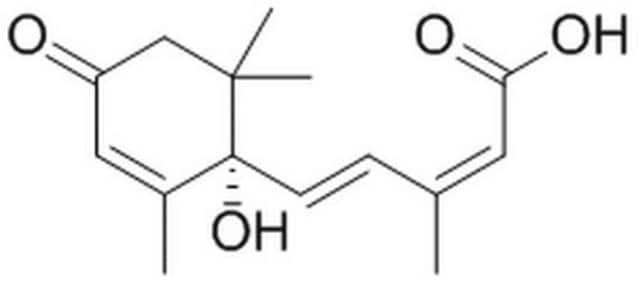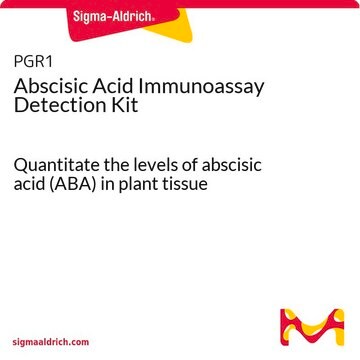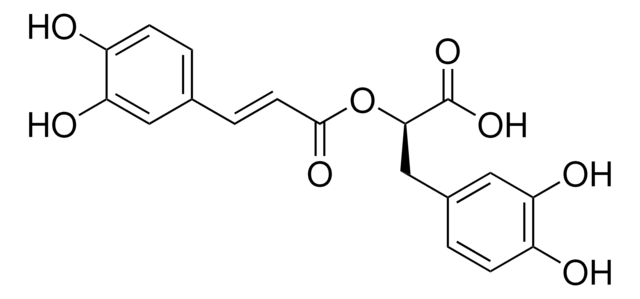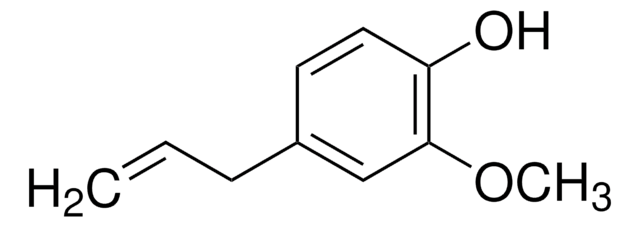A4906
(+)-Abscisic acid
≥98% (HPLC), powder, growth regulator
Synonym(s):
(S)-5-(1-Hydroxy-2,6,6-trimethyl-4-oxo-2-cyclohexen-1-yl)-3-methyl-(2Z,4E)-pentadienoic acid, ABA, Dormin
About This Item
Recommended Products
product name
(+)-Abscisic acid, ≥98% (HPLC)
Quality Level
Assay
≥98% (HPLC)
form
powder
application(s)
agriculture
storage temp.
−20°C
SMILES string
CC(\C=C\[C@@]1(O)C(C)=CC(=O)CC1(C)C)=C\C(O)=O
InChI
1S/C15H20O4/c1-10(7-13(17)18)5-6-15(19)11(2)8-12(16)9-14(15,3)4/h5-8,19H,9H2,1-4H3,(H,17,18)/b6-5+,10-7-/t15-/m1/s1
InChI key
JLIDBLDQVAYHNE-YKALOCIXSA-N
Looking for similar products? Visit Product Comparison Guide
Application
- as a supplement for the germination of Arabidopsis thaliana seeds
- as a component of buffered nodulation medium to check its effects on lateral root density (LRD) in leguminous and non-leguminous plants
- as a standard to study its effects on root meristem defects in Medicago truncatula latd mutant
Biochem/physiol Actions
Other Notes
Signal Word
Warning
Hazard Statements
Precautionary Statements
Hazard Classifications
Aquatic Acute 1 - Aquatic Chronic 1
Storage Class Code
11 - Combustible Solids
WGK
WGK 3
Flash Point(F)
Not applicable
Flash Point(C)
Not applicable
Personal Protective Equipment
Regulatory Listings
Regulatory Listings are mainly provided for chemical products. Only limited information can be provided here for non-chemical products. No entry means none of the components are listed. It is the user’s obligation to ensure the safe and legal use of the product.
JAN Code
A4906-BULK:
A4906-VAR:
A4906-1MG:
A4906-250UG:
A4906-5MG:
Certificates of Analysis (COA)
Search for Certificates of Analysis (COA) by entering the products Lot/Batch Number. Lot and Batch Numbers can be found on a product’s label following the words ‘Lot’ or ‘Batch’.
Already Own This Product?
Find documentation for the products that you have recently purchased in the Document Library.
Customers Also Viewed
Our team of scientists has experience in all areas of research including Life Science, Material Science, Chemical Synthesis, Chromatography, Analytical and many others.
Contact Technical Service










